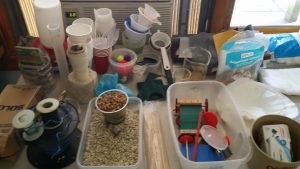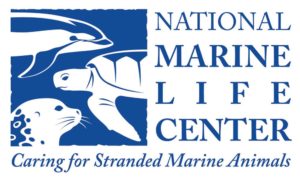 Engage your students in an exciting STEM Week Challenge: The Survivor Island Challenge that will provide your students with a unique experience that integrates science concepts and the engineering design process in an exciting way. Funded by the MA STEM Advisory Council, help your students rise to the MA STEM Week theme “See Yourself in STEM” as they use their STEM skills and creativity to meet the Survivor Island Challenge:
Engage your students in an exciting STEM Week Challenge: The Survivor Island Challenge that will provide your students with a unique experience that integrates science concepts and the engineering design process in an exciting way. Funded by the MA STEM Advisory Council, help your students rise to the MA STEM Week theme “See Yourself in STEM” as they use their STEM skills and creativity to meet the Survivor Island Challenge:
You have been stranded on a deserted island. You and your team have found a safe place to build a rustic encampment. The only source of freshwater is quite a distance from the encampment. You must find a way to move water to the encampment and then filter it to make it safe to drink. Your challenge is to build a model of your water movement/filtration system. Your model must show the water moving a minimum distance of 30cm.
The challenge is designed for middle school students but is easily adaptable to upper elementary or high school students. The challenge can take place in either the classroom or remote learning settings.
The Survivor Island Challenge will enable teachers to utilize grade-level appropriate science and technology concepts in one over-arching school challenge. The water movement system can involve anything as simple as gravity to more complex designs that involve solar and/or wind power. Students will be given a list of supplies available (washed up in a cargo bin) or you can have them brainstorm items that could be found on a deserted island. The challenge can be completed in a classroom setting or completed remotely with objects students have at home.
Students will demonstrate their learning in a presentation of their model and a demonstration of how it works. They will be encouraged to share their process of ‘redesigning’ to find the best solution. The availability of clean water is a global issue. There is an opportunity to make this challenge interdisciplinary with research into developing countries and how water is moved and purified for consumption.
Teachers will receive a curriculum guide, support from the three sponsoring organizations and the opportunity to attend their choice of a 2-part afternoon or a one-day (5 hours) virtual professional development workshop where they will participate in the challenge themselves. We will experiment with solar panels and motors, discover how to use simple circuits and build model wind turbines. They will be able to select the most appropriate approach for their students and trouble-shoot any potential pitfalls. Teachers will deepen their conceptual understandings in science/technology/engineering and experience ways to integrate project-based experiences linked to the common core in their classrooms. Teachers participating in the Pre-Challenge Teacher Workshop will receive a kit of materials for use with their students as well as resources for working with their students in the classroom or remotely.
 Activities covered during the workshop and included in the curriculum guide:
Activities covered during the workshop and included in the curriculum guide:
Water filtration activity: Students will receive ‘dirty water’ and be given the challenge to clean the water as much as possible, while losing as little volume as possible.
Introduction to circuits: Students will learn how to make simple circuits.
Introduction to solar panels: Building on their knowledge of circuits, students will use solar panels to light a light bulb. Further exploration includes testing different solar panel angles and distance from the light source (bulbs).
Wind turbine challenge: Students will use multimeters and a blade design challenge to build a wind turbine that produces the most energy.
Solar fountain challenge: Students will design and build a simple solar water fountain using a 3.0 Volt solar panel.
On Friday, October 23 schools participating in the challenge will have an opportunity to participate in a virtual “challenge showcase”.
Questions? Email us at wadeinstitute@wadeinstitutema.org.
Hosted By: Wade Institute for Science Education, National Marine Life Center, and Lloyd Center for the Environment
STEM Week (October 19th – 23rd) is sponsored by the Executive Office of Education and the MA STEM Advisory Council.
The STEM Challenge is funded by grants from the MA STEM Advisory Council and Sensata Technologies.
Registration for the 2020 STEM Week Challenge is now closed.
If you are interested in taking this workshop, please visit our Focus Workshops page to learn more about our 2023-2024 Rise to the Challenge Focus Workshop Series!



